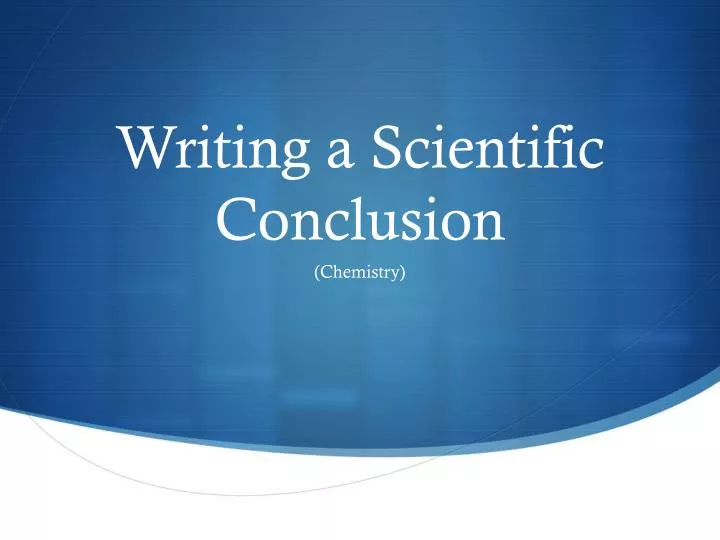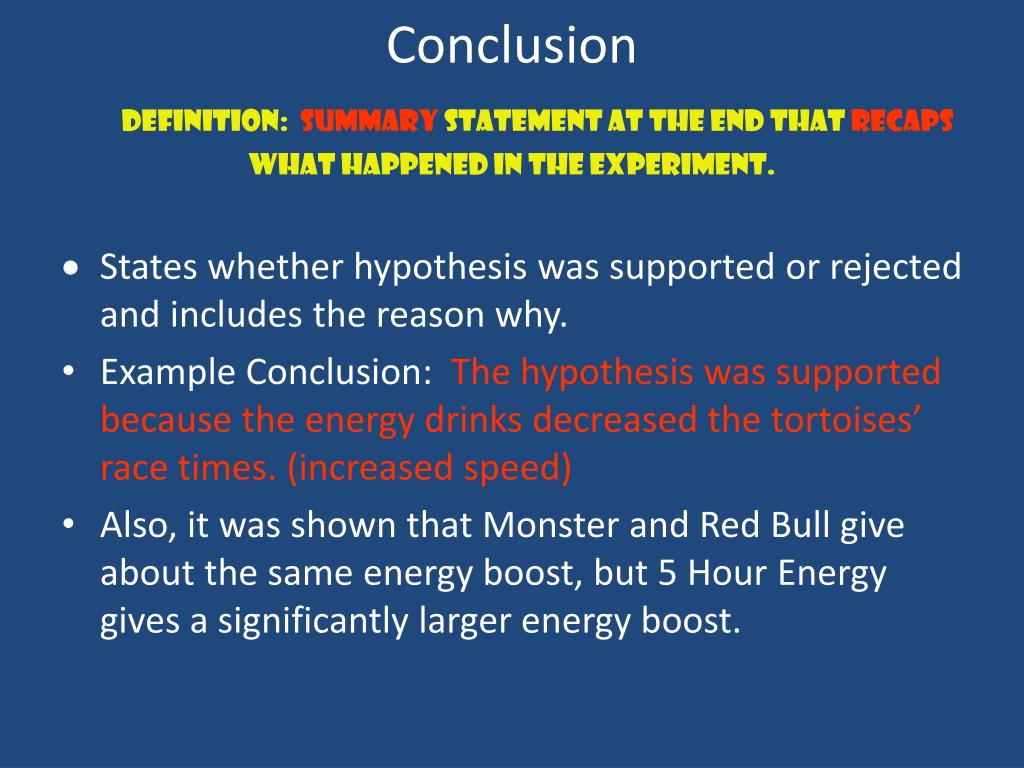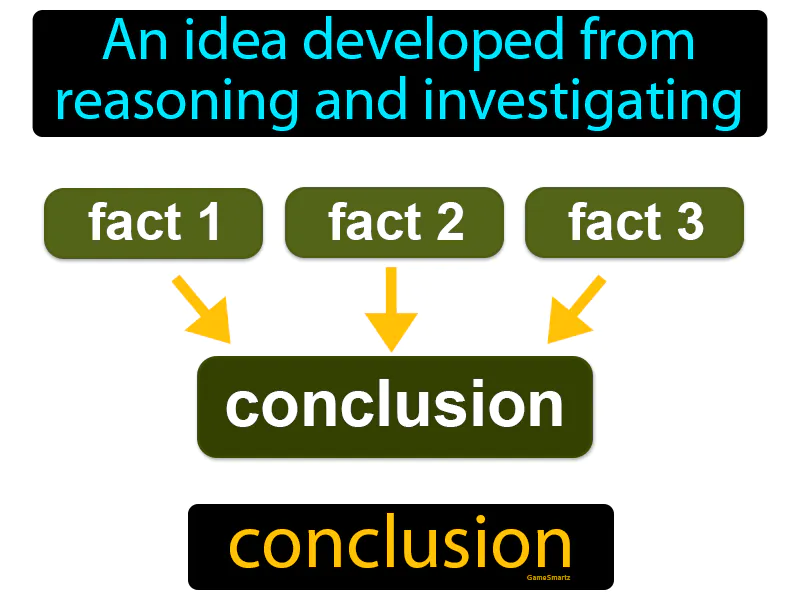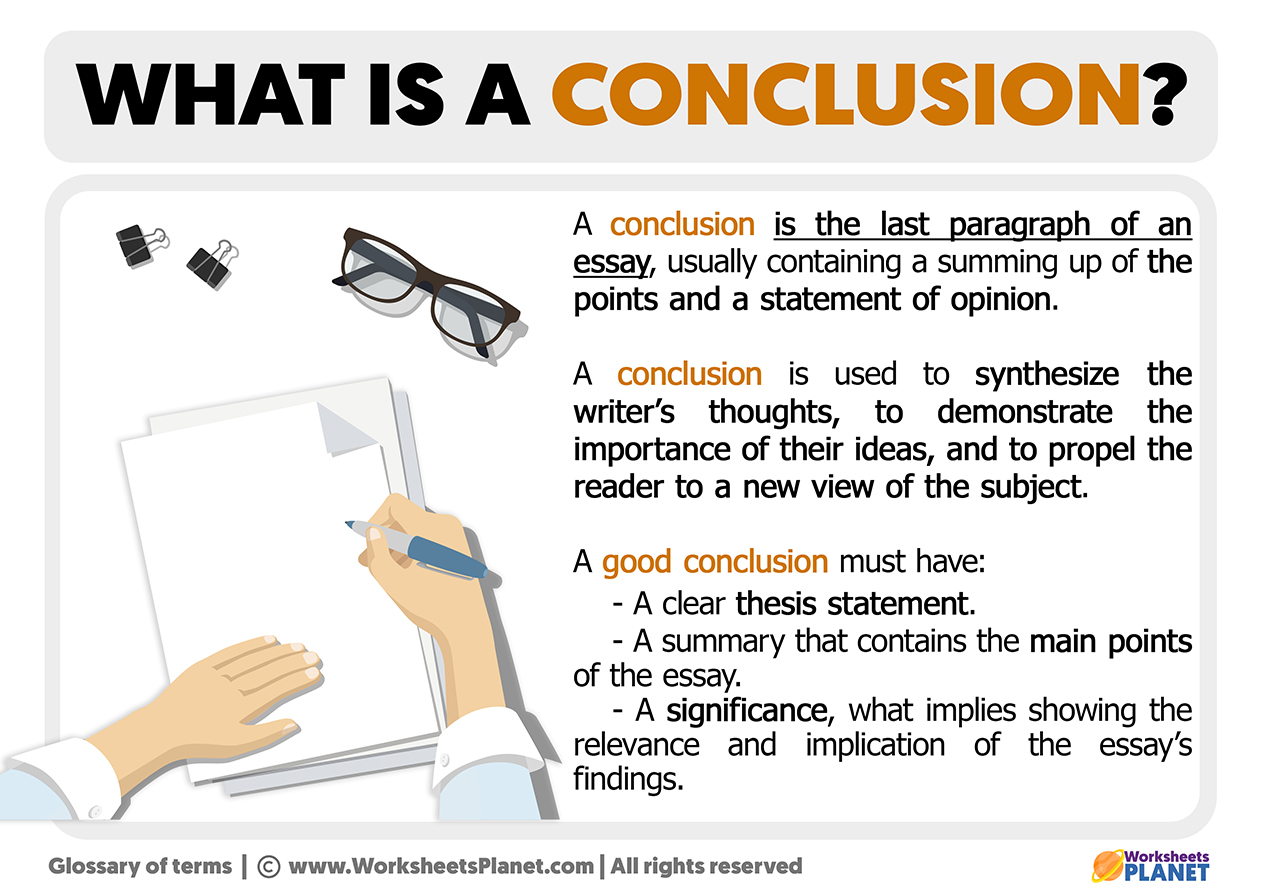Conclusion Definition In Science - The final paragraph or section of your scientific work. Your conclusion should be based solely on your results. Your conclusion should answer the question posed in step one. Your conclusion should answer the question posed in step one. It’s a meticulously crafted synthesis of findings that addresses the original research. Your conclusion should be based solely on your results. A scientific conclusion is not merely a summary; This is your opportunity to reflect on and bring. The conclusion is one statement, backed up by data analysis, that supports or refutes the hypothesis.
Your conclusion should be based solely on your results. A scientific conclusion is not merely a summary; Your conclusion should answer the question posed in step one. The final paragraph or section of your scientific work. The conclusion is one statement, backed up by data analysis, that supports or refutes the hypothesis. Your conclusion should answer the question posed in step one. Your conclusion should be based solely on your results. It’s a meticulously crafted synthesis of findings that addresses the original research. This is your opportunity to reflect on and bring.
Your conclusion should be based solely on your results. The conclusion is one statement, backed up by data analysis, that supports or refutes the hypothesis. The final paragraph or section of your scientific work. This is your opportunity to reflect on and bring. Your conclusion should answer the question posed in step one. It’s a meticulously crafted synthesis of findings that addresses the original research. Your conclusion should be based solely on your results. Your conclusion should answer the question posed in step one. A scientific conclusion is not merely a summary;
What are the Variables in Your Experiment?
Your conclusion should be based solely on your results. Your conclusion should be based solely on your results. A scientific conclusion is not merely a summary; Your conclusion should answer the question posed in step one. Your conclusion should answer the question posed in step one.
Scientific Method Definition Example ppt download
Your conclusion should be based solely on your results. Your conclusion should answer the question posed in step one. The final paragraph or section of your scientific work. The conclusion is one statement, backed up by data analysis, that supports or refutes the hypothesis. A scientific conclusion is not merely a summary;
How to write a thesis conclusion for biological life science Artofit
It’s a meticulously crafted synthesis of findings that addresses the original research. Your conclusion should answer the question posed in step one. This is your opportunity to reflect on and bring. Your conclusion should be based solely on your results. Your conclusion should answer the question posed in step one.
Draw Conclusion Definition Science
Your conclusion should be based solely on your results. A scientific conclusion is not merely a summary; Your conclusion should answer the question posed in step one. This is your opportunity to reflect on and bring. The conclusion is one statement, backed up by data analysis, that supports or refutes the hypothesis.
PPT Writing a Good Conclusion During a Scientific Investigation
It’s a meticulously crafted synthesis of findings that addresses the original research. A scientific conclusion is not merely a summary; Your conclusion should answer the question posed in step one. This is your opportunity to reflect on and bring. Your conclusion should be based solely on your results.
PPT Writing a Scientific Conclusion PowerPoint Presentation, free
The conclusion is one statement, backed up by data analysis, that supports or refutes the hypothesis. The final paragraph or section of your scientific work. This is your opportunity to reflect on and bring. It’s a meticulously crafted synthesis of findings that addresses the original research. Your conclusion should answer the question posed in step one.
PPT Scientific Method PowerPoint Presentation, free download ID1588351
Your conclusion should be based solely on your results. A scientific conclusion is not merely a summary; Your conclusion should be based solely on your results. The conclusion is one statement, backed up by data analysis, that supports or refutes the hypothesis. Your conclusion should answer the question posed in step one.
Conclusion Definition & Image Flippy Flashcards
Your conclusion should answer the question posed in step one. The conclusion is one statement, backed up by data analysis, that supports or refutes the hypothesis. It’s a meticulously crafted synthesis of findings that addresses the original research. The final paragraph or section of your scientific work. This is your opportunity to reflect on and bring.
What is a Conclusion Definition & Meaning
Your conclusion should answer the question posed in step one. The conclusion is one statement, backed up by data analysis, that supports or refutes the hypothesis. The final paragraph or section of your scientific work. It’s a meticulously crafted synthesis of findings that addresses the original research. Your conclusion should answer the question posed in step one.
Science Project 5th Grade Conclusion Samples
Your conclusion should answer the question posed in step one. Your conclusion should be based solely on your results. Your conclusion should be based solely on your results. It’s a meticulously crafted synthesis of findings that addresses the original research. A scientific conclusion is not merely a summary;
Your Conclusion Should Be Based Solely On Your Results.
Your conclusion should be based solely on your results. The final paragraph or section of your scientific work. Your conclusion should answer the question posed in step one. A scientific conclusion is not merely a summary;
The Conclusion Is One Statement, Backed Up By Data Analysis, That Supports Or Refutes The Hypothesis.
This is your opportunity to reflect on and bring. It’s a meticulously crafted synthesis of findings that addresses the original research. Your conclusion should answer the question posed in step one.
.PNG)








